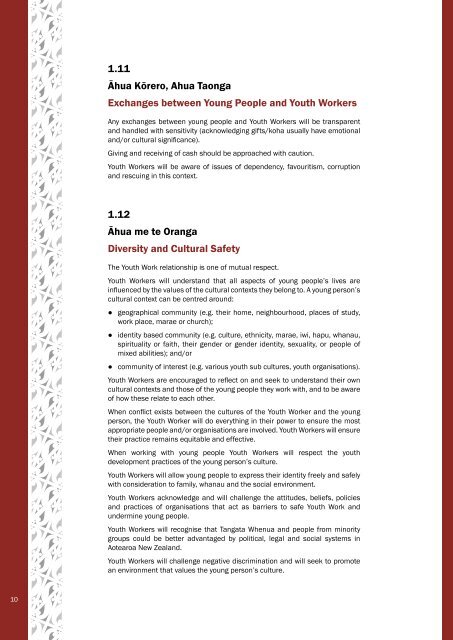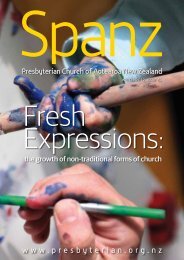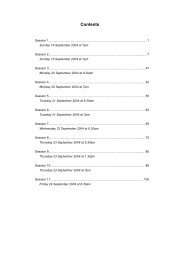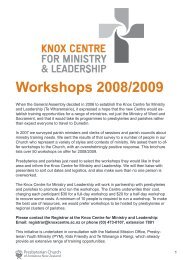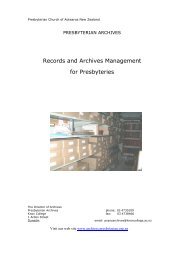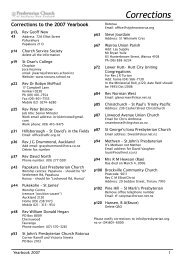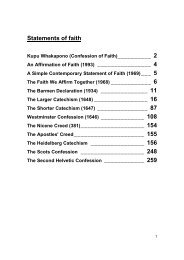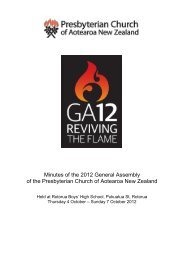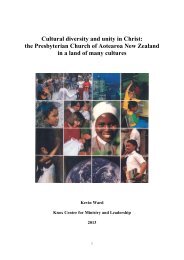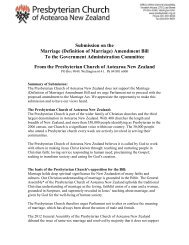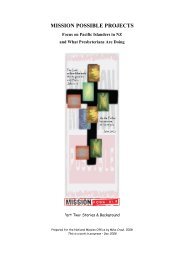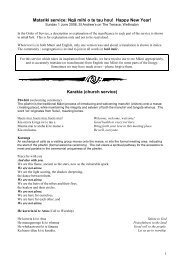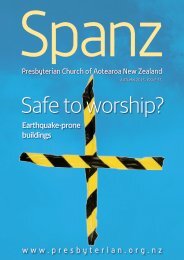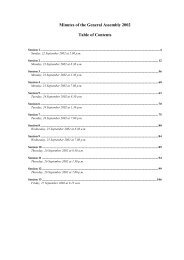CODE OF ETHICS - Ministry of Youth Development
CODE OF ETHICS - Ministry of Youth Development
CODE OF ETHICS - Ministry of Youth Development
You also want an ePaper? Increase the reach of your titles
YUMPU automatically turns print PDFs into web optimized ePapers that Google loves.
1.11<br />
Āhua Kōrero, Ahua Taonga<br />
Exchanges between Young People and <strong>Youth</strong> Workers<br />
Any exchanges between young people and <strong>Youth</strong> Workers will be transparent<br />
and handled with sensitivity (acknowledging gifts/koha usually have emotional<br />
and/or cultural significance).<br />
Giving and receiving <strong>of</strong> cash should be approached with caution.<br />
<strong>Youth</strong> Workers will be aware <strong>of</strong> issues <strong>of</strong> dependency, favouritism, corruption<br />
and rescuing in this context.<br />
1.12<br />
Āhua me te Oranga<br />
Diversity and Cultural Safety<br />
The <strong>Youth</strong> Work relationship is one <strong>of</strong> mutual respect.<br />
<strong>Youth</strong> Workers will understand that all aspects <strong>of</strong> young people’s lives are<br />
influenced by the values <strong>of</strong> the cultural contexts they belong to. A young person’s<br />
cultural context can be centred around:<br />
● geographical community (e.g. their home, neighbourhood, places <strong>of</strong> study,<br />
work place, marae or church);<br />
● identity based community (e.g. culture, ethnicity, marae, iwi, hapu, whanau,<br />
spirituality or faith, their gender or gender identity, sexuality, or people <strong>of</strong><br />
mixed abilities); and/or<br />
● community <strong>of</strong> interest (e.g. various youth sub cultures, youth organisations).<br />
<strong>Youth</strong> Workers are encouraged to reflect on and seek to understand their own<br />
cultural contexts and those <strong>of</strong> the young people they work with, and to be aware<br />
<strong>of</strong> how these relate to each other.<br />
When conflict exists between the cultures <strong>of</strong> the <strong>Youth</strong> Worker and the young<br />
person, the <strong>Youth</strong> Worker will do everything in their power to ensure the most<br />
appropriate people and/or organisations are involved. <strong>Youth</strong> Workers will ensure<br />
their practice remains equitable and effective.<br />
When working with young people <strong>Youth</strong> Workers will respect the youth<br />
development practices <strong>of</strong> the young person’s culture.<br />
<strong>Youth</strong> Workers will allow young people to express their identity freely and safely<br />
with consideration to family, whanau and the social environment.<br />
<strong>Youth</strong> Workers acknowledge and will challenge the attitudes, beliefs, policies<br />
and practices <strong>of</strong> organisations that act as barriers to safe <strong>Youth</strong> Work and<br />
undermine young people.<br />
<strong>Youth</strong> Workers will recognise that Tangata Whenua and people from minority<br />
groups could be better advantaged by political, legal and social systems in<br />
Aotearoa New Zealand.<br />
<strong>Youth</strong> Workers will challenge negative discrimination and will seek to promote<br />
an environment that values the young person’s culture.<br />
10


